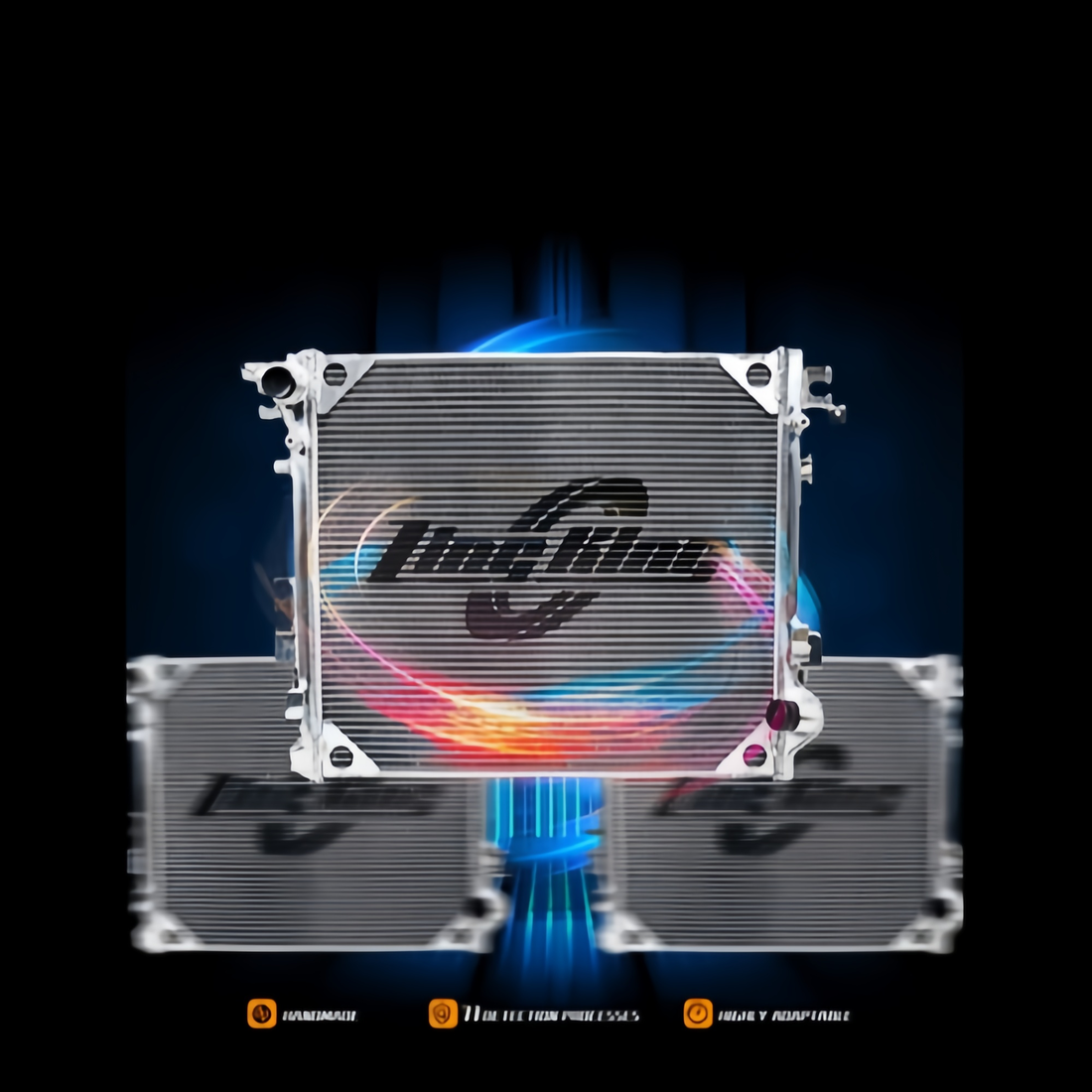
Noticias
All-Aluminum vs. Plastic-Aluminum Radiators: Which is Right for Your Chevrolet, Ford, or Jeep?
All-Aluminum vs. Plastic-Aluminum Radiators: Which is Right for Your Chevrolet, Ford, or Jeep?
Keeping your engine cool is non-negotiable. Your car radiator is the heart of the cooling system, and choosing the right one – especially when replacing a Chevrolet radiator, Ford radiator, or Jeep radiator – is critical. One of the biggest decisions? All-Aluminum vs. Plastic-Aluminum (Aluminum/Plastic) radiators. Let's break down the differences to help you pick the best radiator replacement for your ride.
The Core Difference: Construction Matters
- All-Aluminum Radiators: As the name suggests, both the core (where coolant flows) and the tanks (the end caps holding the coolant) are made entirely of aluminum. These are often welded or brazed together.
- Plastic-Aluminum Radiators (Aluminum/Plastic): These feature a durable aluminum core, but the tanks are constructed from high-strength, heat-resistant plastic. The plastic tanks are crimped or glued onto the aluminum core.
Comparing Performance & Durability: All-Aluminum vs. Plastic-Aluminum
1. Durability & Impact Resistance:
- All-Aluminum: Generally more resistant to physical impacts and vibration stress. Less prone to tank cracking from age or impact. A strong choice for off-road Jeeps or vehicles in harsh conditions.
- Plastic-Aluminum: The plastic tanks can become brittle over time due to heat cycles and are more susceptible to cracking from impact or improper installation. However, modern plastics are very resilient for typical road use.
2. Heat Dissipation & Cooling Efficiency:
- All-Aluminum: Aluminum has excellent thermal conductivity. While the core material is the same, the all-aluminum construction can sometimes allow for slightly more efficient heat transfer overall, especially in high-performance applications demanding maximum cooling system performance. Crucial for powerful engines like those in many Ford trucks or performance Chevrolet models.
- Plastic-Aluminum: The aluminum core provides excellent cooling, identical to an all-aluminum unit. The plastic tanks don't significantly hinder the core's primary cooling function for most stock or mildly modified vehicles. Your Ford radiator or Chevrolet radiator replacement will perform reliably.
3. Weight:
- All-Aluminum: Typically lighter than their plastic-tank counterparts. This can be a minor factor for performance enthusiasts.
- Plastic-Aluminum: Slightly heavier due to the density of the plastic tanks.
4. Cost & Value:
- All-Aluminum: Usually more expensive upfront due to material and manufacturing costs. Represents a premium option.
- Plastic-Aluminum: Most common OE (Original Equipment) style. Offers excellent value and reliability for the vast majority of drivers needing a radiator replacement. This is the standard type for most Jeep radiator, Chevrolet radiator, and Ford radiator applications.
5. Repairability:
- All-Aluminum: Can sometimes be repaired (welded) if damaged, depending on the location and severity.
- Plastic-Aluminum: Plastic tanks are very difficult to repair reliably once cracked; replacement is almost always recommended.
Which Radiator is Best for Your Chevrolet, Ford, or Jeep?
Choose an All-Aluminum Radiator If:
- You demand maximum durability for off-roading (Jeep Wrangler, Jeep Cherokee owners, take note!).
- You have a high-performance engine or subject your vehicle to extreme stress (towing, racing - some Ford Mustang or Chevrolet Camaro applications).
- Long-term resilience is your top priority, and budget is secondary.
- You prefer the premium construction.
Choose a Plastic-Aluminum Radiator If:
- You need a reliable, cost-effective OE-style replacement for daily driving or standard use.
- You're replacing a Chevrolet radiator, Ford radiator, or Jeep radiator with the factory-specified type.
- Budget is a primary concern.
Your vehicle operates under normal conditions. Modern plastic-aluminum car radiators are engineered for years of reliable service in most applications.
The Bottom Line on Your Radiator Replacement
Both all-aluminum and plastic-aluminum radiators effectively cool your engine when properly selected and installed. The "best" car radiator depends on your specific vehicle (Chevrolet, Ford, Jeep), driving habits, performance needs, and budget.
For most drivers replacing a stock Ford radiator, Chevrolet radiator, or Jeep radiator, a high-quality plastic-aluminum unit provides exceptional value and reliable cooling system performance.
For those pushing their vehicles harder or prioritizing ultimate durability, investing in an all-aluminum radiator is a wise upgrade.
Ready to find the perfect radiator replacement? Browse our extensive selection of top-quality all-aluminum and plastic-aluminum radiators specifically designed for your Chevrolet, Ford, and Jeep vehicles. Keep your engine cool and running strong!
#CarRadiator #RadiatorReplacement #ChevroletRadiator #FordRadiator #JeepRadiator #AutoParts #CarMaintenance #CoolingSystem #EngineCooling #AllAluminumRadiator #AluminumPlasticRadiator #ChevyTruck #FordTruck #JeepWrangler #JeepCherokee #Mustang #Camaro #OverheatingFix #DIYAuto #CarCare #ShopifyAuto
